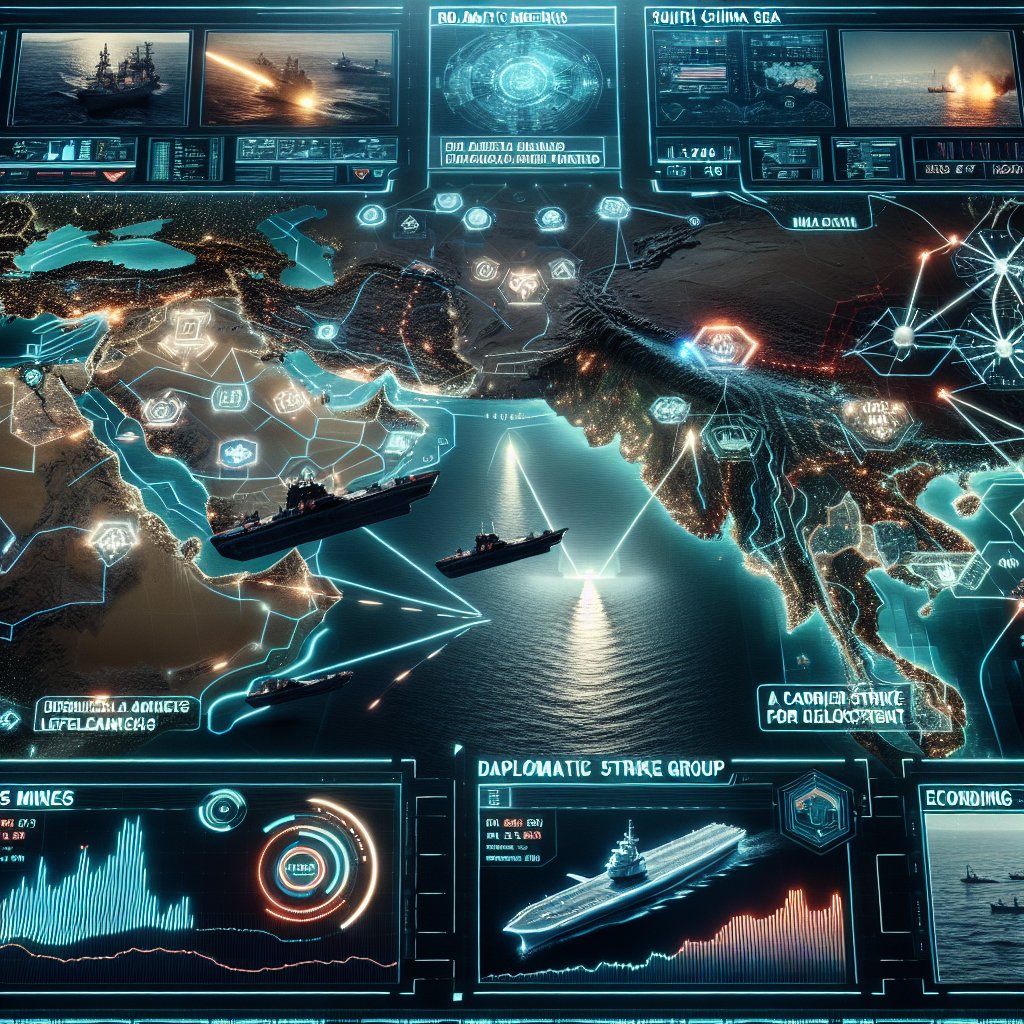Image created by AI
US and Allies Brace for Possible Iranian Retaliation as Tensions Escalate in Middle East
Amidst growing tension in the Middle East, the United States has signalled that it anticipates possible aggressive moves by Iran or its proxies, which could threaten the stability of the region. National Security spokesperson, John Kirby, underscored the shared concerns between the US and Israel regarding the likelihood of such attacks, potentially materializing within the same week as the announcement.
The backdrop of this apprehension involves a series of violent events that has escalated regional hostilities. In a tit-for-tat spate of violence, Israel struck back for the killing of 12 youths in the Golan Heights by targeting a senior Hezbollah figure, which was promptly followed by the assassination of Ismail Haniyeh, Hamas's political leader, in Tehran. These events have precipitated an environment charged with vows of retribution, most notably from Iran, a key backer of Hamas.
In a proactive posture, the Pentagon has taken concrete steps to bolster defenses in the region. On orders from Secretary of Defense Lloyd Austin, a guided missile submarine and the Abraham Lincoln carrier strike group are being deployed to provide support, though the latter is currently stationed near the South China Sea, potentially delaying its Middle East arrival.
Amidst these simmering tensions, British Prime Minister Keir Starmer engaged with Iranian President Masoud Pezeshkian. Seeking a diplomatic path, Starmer's call aimed at dissuading Iran from launching attacks and highlighted the consensus that spiraling into war furthers no one's interests. This conversation followed discussions with US President Joe Biden and other European allies, underscoring a concerted international push for the mitigation of conflict.
Despite diplomatic efforts, military action continues on the ground. Israeli forces maintained operations around Khan Younis in southern Gaza, as the world watches and hopes to avoid the ignition of a larger confrontation.
Nevertheless, the threat of conflict has had immediate economic repercussions—oil prices surged by over three percent due to the perceived risk to global crude supplies should a widespread Middle Eastern conflict erupt. This underscores the far-reaching effects regional stability has on international economics.
The current emphasis on readiness and the movement of military assets into the Middle East reflect the urgency of the situation, but they also serve as a deterrent. The hope is that increased defenses and the prospect of an escalated international response will discourage further hostile actions. The international community remains perched on a precipice, putting diplomatic dialogue at a premium as the preferable alternative to what could otherwise unfold as a larger crisis.










